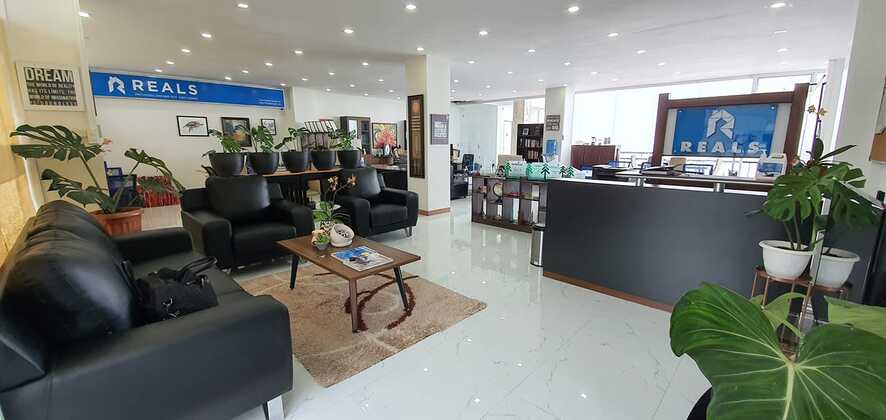|
Intro:
There are a lot of choices on where to invest nowadays. But the two most well-known investment options are stocks and real estate. Both are profitable, and both have their own share of benefits and negatives that one might need to consider first before diving in. Here is a quick comparison to help you decide which of the two is the best one for you: Stocks: Pros: - As the company grows, the shares go up as well. You literally profit from the company’s successes. - Virtually doesn’t require hands-on involvement. Your broker will assign you a trader who will help you. There are also a lot of online brokers available nowadays where you only need to open a stock trading account and look for a company to invest in. - Initial investment prices are flexible. There may be a minimum amount needed, but beyond that it’s up to you. However, your buying power depends on how much you funds you invest in your account. - There is no monthly fee required that you have to pay or a specific amount that you need to maintain. Cons: - There are extreme fluctuations on share prices that are out of your control. Yes they may spike whenever the company has strong earnings or a high stock demand, but it may also plummet when their revenue takes a bad turn or other negative factors within the company. You can lose a lot of money, especially during a stock market crash, and there’s almost nothing you can do about it. - Those who are new to the world of stock investing may find it overwhelming and may be clueless as to how to start without doing some research. Others may resort to finding mentors who can guide them. Real Estate: Pros: - You can do a lot of things with real estate. You can live in it, use it as a vacation home, start a business, or earn passive income by renting it out to people. - Thanks to inflation, your real estate can profit more especially if you rent it out by increasing rent prices. - Having something as valuable and tangible as real estate that you can show to your friends or other people bestows a psychological benefit. - You can also sell it once it accumulates a considerable value. Cons: - Somewhat costly. As it sits there, you’ll have to mind maintenance to keep it on top shape, if it is not rented out. There may also be monthly utilities and fees that you need to pay while it is not yet generating passive income. - May require a lot of hands-on work which may include late-night calls from tenants or neighbors, and sudden malfunctions that need inspection. - It may take a long time to find a buyer if you need to sell it, or a tenant if your property is on an inconvenient location.
0 Comments
Leave a Reply. |
Archives
July 2024
Categories
All
|
Hi! Welcome to our website. Having an agent/broker on your real estate search is a gift because with or without them the price of the property is always the same. They give you FREE SERVICE and only pure service. On your part, everything is to gain. Claim your gift now! :)
meet your Real estate Broker Partner:
Roman Joe Anoso, RN, REB
Real estate Broker PRC license number: 19887
HLURB registration number: CAR-B-05/21-029
HLURB registration number: CAR-B-05/21-029
Roman joe Anoso is a multi-awarded real estate broker, consistent Top #1 for 8 years to date, being recognized by the following companies:
Suntrust Properties, Inc.
- Overall Nationwide Top # 1 Real estate broker year 2018:
Vista Residences, Inc.
- Overall Nationwide Top # 1 Real estate broker year 2017:
Goshen Land capital, inc.
- Overall Nationwide Top # 1 Real estate broker year 2011 to 2016:
Suntrust Properties, Inc.
- Overall Nationwide Top # 1 Real estate broker year 2018:
Vista Residences, Inc.
- Overall Nationwide Top # 1 Real estate broker year 2017:
Goshen Land capital, inc.
- Overall Nationwide Top # 1 Real estate broker year 2011 to 2016:
office address: REALS Corporation, Barangay Dontogan, Baguio city, 2600
personal: +63917-5645-863
viber/whatsapp: +63917-5645-863
add him on facebook (CLICK HERE)
office landline: 074-442-2353 (for clearer conversation)
email: [email protected]
skype: romankat2
website: www.realestatebaguio.com
personal: +63917-5645-863
viber/whatsapp: +63917-5645-863
add him on facebook (CLICK HERE)
office landline: 074-442-2353 (for clearer conversation)
email: [email protected]
skype: romankat2
website: www.realestatebaguio.com
official Real Estate Brokerage Website of REALS Corporation
for our affiliate program CLICK HERE
for our affiliate program CLICK HERE



 RSS Feed
RSS Feed




